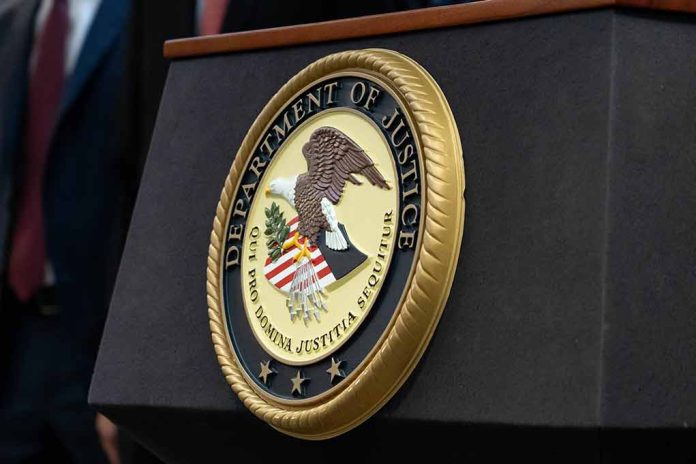
(RepublicanPress.org) – On February 5, Special Counsel Robert Hur released his long-awaited final report on his months-long investigation into Joe Biden’s questionable retention of classified government documents. The 388-page document explained the prosecutor’s decision to decline to pursue a criminal indictment against the president.
Hur wrote that a jury would likely extend sympathy to Biden due to his advanced age, even though he “willfully retained and disclosed” the substance of those documents after he departed the White House in 2017. Continuing, he explained that Biden presented himself during his interview with the special prosecutor’s team as a “sympathetic […] elderly man with a [faulty] memory.”
The Justice Department released a transcript of the interviews. However, several watchdog groups and news organizations filed a FOIA lawsuit against the DOJ on March 11, asking the US District Court for the District of Columbia to order DOJ officials to turn over the audio recordings.
A recent DOJ filing in the case conceded that the department was blocking the audio recording’s release due to concerns regarding the potential “malicious manipulation” of those files.
DOJ Response
On May 31, the Justice Department filed a motion for summary judgment. DOJ attorneys argued that the “disclosure of that record [was] unwarranted” since they produced a transcript of the interview.
The DOJ also argued that releasing the audio files “would constitute a significant invasion of [Biden’s] privacy” and could “threaten critical law enforcement interests by chilling the potential cooperation” of current and future cooperating witnesses. Additionally, the 51-page document said the president’s “privacy harms” could be “amplified by the threat of manipulation” of those recordings.
The motion also discussed prior instances where the courts recognized the privacy concerns surrounding the release of “recordings of other presidents’ interactions with law enforcement officials.” For instance, the DOJ cited the Eastern US District of Arkansas’ 1996 decision to block the release of the audio recordings of a deposition of Bill Clinton.
The pleading also cited the Eight US Circuit Court of Appeals 1996 decision to block any duplications of those audio files, in part, due to the “potential for abuse” of those recordings. The DOJ argued that modern “advancements in audio, artificial intelligence, and ‘deep fake’ technologies” increased the department’s concerns that a malicious actor could alter the recordings.
The motion also warned that if the court ordered the release of the audio files, public knowledge of their availability would make it easier for someone to “pass off” a manipulated version of the recordings or a deep fake generated from those files as an “authentic recording.”
Copyright 2024, RepublicanPress.org







